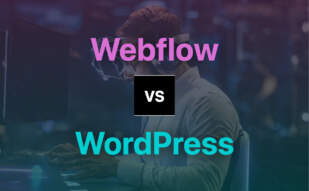
WordPress
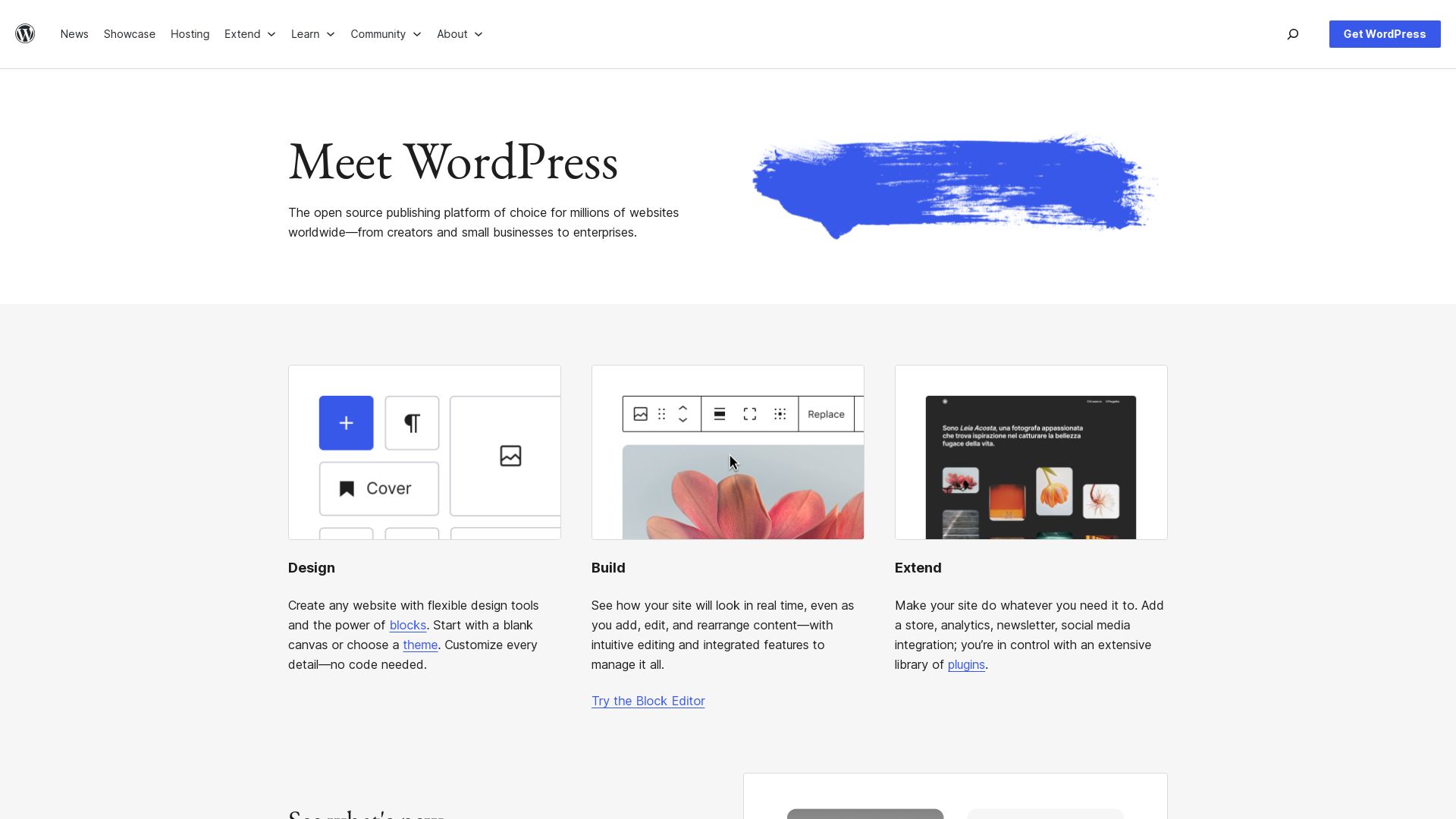
A powerhouse in the world of websites, WordPress is a global giant boasting a prediction-defying 40% of the world’s websites under its mighty umbrella. With a staggering 64% CMS market share, taking the assistance of WordPress for your eCommerce venture translates to becoming a part of a thriving digital ecosystem.
WordPress Best Features
- Flexible and powerful, accommodating simple blogs to complex eCommerce platforms.
- Hosting a portfolio of over 1,200 eCommerce-specific WordPress themes tailored for personalization.
- Empowered with WooCommerce, a free and open-source plugin devised for eCommerce prowess.
- Enhanced with Yoast SEO plugin, for crafting SEO friendly digital spectacles.
- Endless potential with a myriad of plugins facilitating virtual product booking, upselling, and pre-ordering.
| Feature | Description |
| Multiple Payment Gateways | WooCommerce facilitates a multitude of payment options including Stripe, PayPal, and Amazon Pay amongst others. |
| Easy Tax Calculation and Shipping Options | Simplify your business operations with easy tax calculations and diverse shipping options. |
| Automated Updates and Staging Site | Enjoy the convenience of automated updates and an exclusive staging site for thorough product testing. |
WordPress Limitations
- Potential compatibility issues with an otherwise diverse assortment of plugins.
- Primarily a content management system. While WordPress can be morphed into an eCommerce platform via plugins, it is not fundamentally designed for online commerce.
- Costs pertaining to WordPress design and development can vary significantly.
WordPress Pricing
A highly customizable platform, WordPress can mold itself to accommodate any budget spectrum. Subject to the complexities of your requirements, factors such as domain registration, custom design, and development may hover between $15-$50 monthly to over $25,000+. Your definitive marketing strategy might cost between $250-$5000, while the hosting costs could be an average of $20 monthly. Transaction fees add up to 2.9% plus $0.30 per transaction for WooCommerce and PayPal. WordPress VIP, a premium service offered by the platform, starts at $25,000 annually.
WordPress Use Cases
Use Case 1: Startups
For those venturing into the digital arena for the first time, WordPress offers a lower cost of entry, easy customization, and robust SEO capabilities to ensure a strong online presence.
Use Case 2: Bloggers
For bloggers, this platform provides a plethora of creative freedom with thousands of themes, extensive customization, and a strong global community of WordPress users.
Use Case 3: Small Businesses
Small businesses can greatly benefit from the impressive features, broad plugin ecosystem, and scalability that WordPress offers, ensuring growth without the need for frequent platform changes.
Squarespace
Established as a sophisticated website builder platform, Squarespace is admired worldwide for its focus on crafting visually pleasing websites. Its richness in offering a platform for e-commerce creation, comprehensive support, powerful analytics, and customizable designs make it a compelling go-to in the realm of web development.
Top Features of Squarespace
- Squarespace Blueprint for tailored template designs.
- Capability to create and manage unlimited products.
- Comprehensive ecommerce tools with an integrated shopping cart and multiple payment gateways.
- Powerful analytics for tracking visitor behavior and sales.
- A specialized platform, Squarespace Commerce, for online store management.
- Integration with Mailchimp for effective email marketing.
- Diversified shipping options through integration with third-party carriers.
| Feature | Details |
|---|---|
| Squarespace Extensions | It’s like an app store to expand Squarespace’s functionalities, though currently limited in options. |
| Customer Support | Available via email, Twitter, and live chat, ensuring issues are promptly addressed. |
| Social Media Integration | Fosters better reach and engagement through popular social media platforms. |
Squarespace Downsides
- Despite its commendable features, Squarespace has limitations in the form of its Extensions. The app store is currently limited in its offerings, limiting the scope of functionality expansion.
- Another downside relates to its pricing, subjecting users to higher costs for more advanced features and functionalities.
Squarespace Pricing
Please consult the Squarespace website for accurate and current pricing details.
Squarespace Use Cases
Use case 1 – eCommerce
For those venturing into the realm of online commerce, Squarespace serves as a potent platform. Its ability to manage unlimited products coupled with its integrated shopping cart and multiple payment gateways make it a robust choice.
Use case 2 – Blogging & Marketing
An excellent platform for driving customer engagement via blogging. Its Mailchimp integration for email marketing and its proficient social media integration ensure comprehensive audience reach.
Use case 3 – Customizable Web Design
For businesses wanting to establish a unique digital identity, Squarespace excels with its Blueprint feature for customizing template designs, fostering a distinct online presence.
Joomla
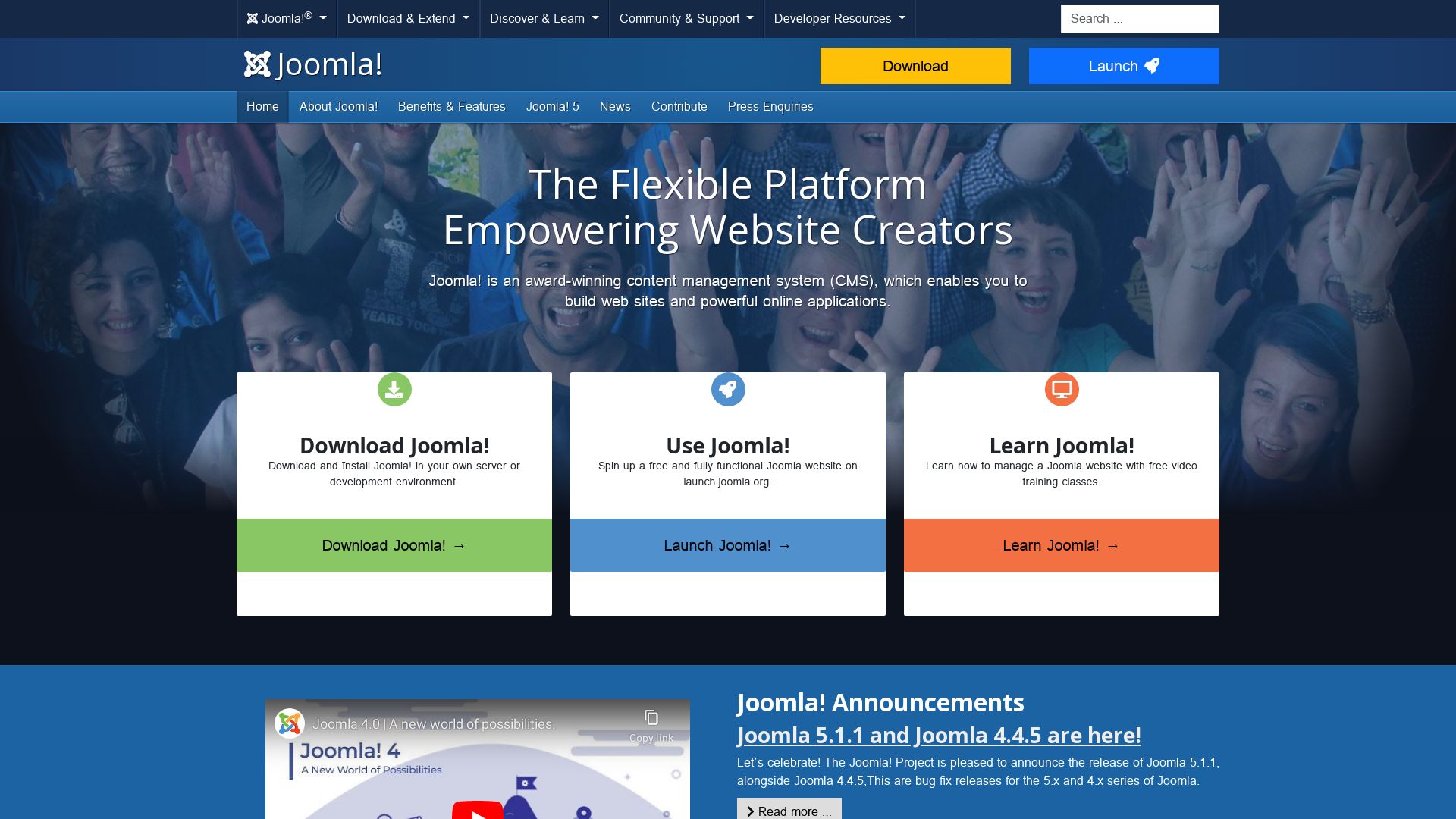
Joomla is a robust, open-source content management system favored for its dynamic web development capabilities.
Joomla Top Features
- Intuitive interface for varied feature utilization.
- Potential for substantial e-commerce development and management.
- End-to-end services, including installation, design and digital marketing.
- Integration with EuroDNS hosting plans for enhanced e-commerce features.
- Joomla 4: Improved website features, heightened security, enriched SEO.
- Scalability: Suited for both businesses and individual content creators.
| Feature | Benefit |
|---|---|
| W3C Accessibility compliance | Guaranteed site accessibility for varied user abilities |
| 6,000+ extensions | Customizable site framework |
| Model-view-controller architecture | Efficient site management and user interaction |
Joomla Downsides
- Relatively steep learning curve for beginners.
- Potential need for code tweaks for some extensions.
Joomla Pricing
Open-source and free platform, but costs can arise with selected extensions and premium services.
Joomla Use Cases
E-commerce Stores
Joomla’s suite of e-commerce tools, including Hikashop, optimized SEO, and vast extensions makes it an ideal choice for managing online stores.
Business Websites
In a business setting, Joomla’s scalability and robust feature-set excels at enhancing online presence and marketing strategies.
Personal Blogs and Websites
Individual bloggers and content creators can utilize the Joomla CMS for ease-of-use, customization options, and robust publishing toolset.
Drupal
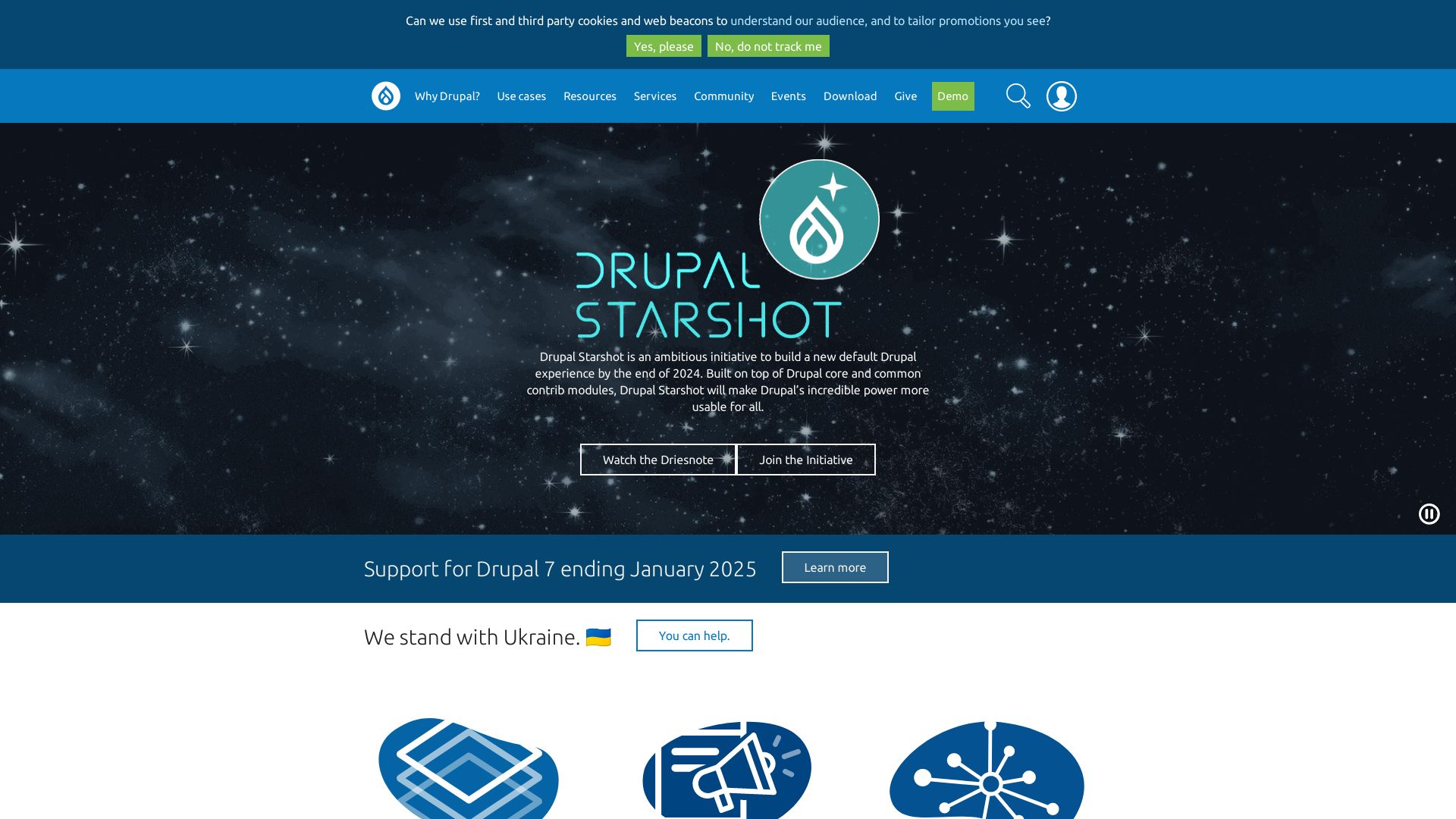
A beacon of innovation and open-source endeavours, Drupal powers millions of websites globally, bridging the divide between nations with its robust eCommerce framework, Drupal Commerce.
Drupal Top Features
- Adaptable Framework: Designed for business growth, accommodating traditional eCommerce requirements like shopping cart, checkout form, and product catalog management.
- Headless Commerce Backend: Capable of creating backend provider via JSON:API or custom REST resources.
- Global Support: Accommodates international currency, tax, and language needs. Perfect for businesses aiming for worldwide outreach.
- Community-Driven Development: Large community of over 45,000 developers constantly innovating and refining.
- Multilingual Sites: Four inbuilt modules in Drupal 9 enable the creation of multilingual sites, addressing the need for global communication.
| Mobile-Ready eCommerce Sites | Adaptive design allows effective rendering on various platforms. |
| Powerful Content Design | Accommodates aesthetic requirements, fostering creative freedom. |
| Integration with Other Platforms | Enables linking eCommerce website with Amazon, eBay, and Etsy. |
Drupal Limitations
Despite its myriad of advantages, Drupal may prove complex for beginners and those unfamiliar with open-source platforms. Plus, the cost can be high based on project customization, complexity, and geography.
Drupal Pricing
Drupal’s open-source model involves costs ranging from as low as $1,000 up to $100,000, depending on the specificity of the project and the region of development. The cost varies between $20k-$40K for a basic Drupal Commerce website and $50K-$100K for a custom enterprise-ready one.
Drupal Use Cases
Use Case 1: Retail eCommerce
If you’re aiming to create interactive and scalable eCommerce platforms, Drupal offers a robust solution. Its customizable, responsive and multilingual store features accommodate diverse customer bases.
Use Case 2: Complex Community Websites
When it comes to devising elaborate, user-driven sites, Drupal shines with its flexibility and custom module development capabilities.
Use Case 3: Businesses Aiming for International Outreach
Businesses planning for wider global outreach can leverage Drupal’s multilingual support, regional pricing, currency integration, and globally-active community for their expansion journey.
Blogger
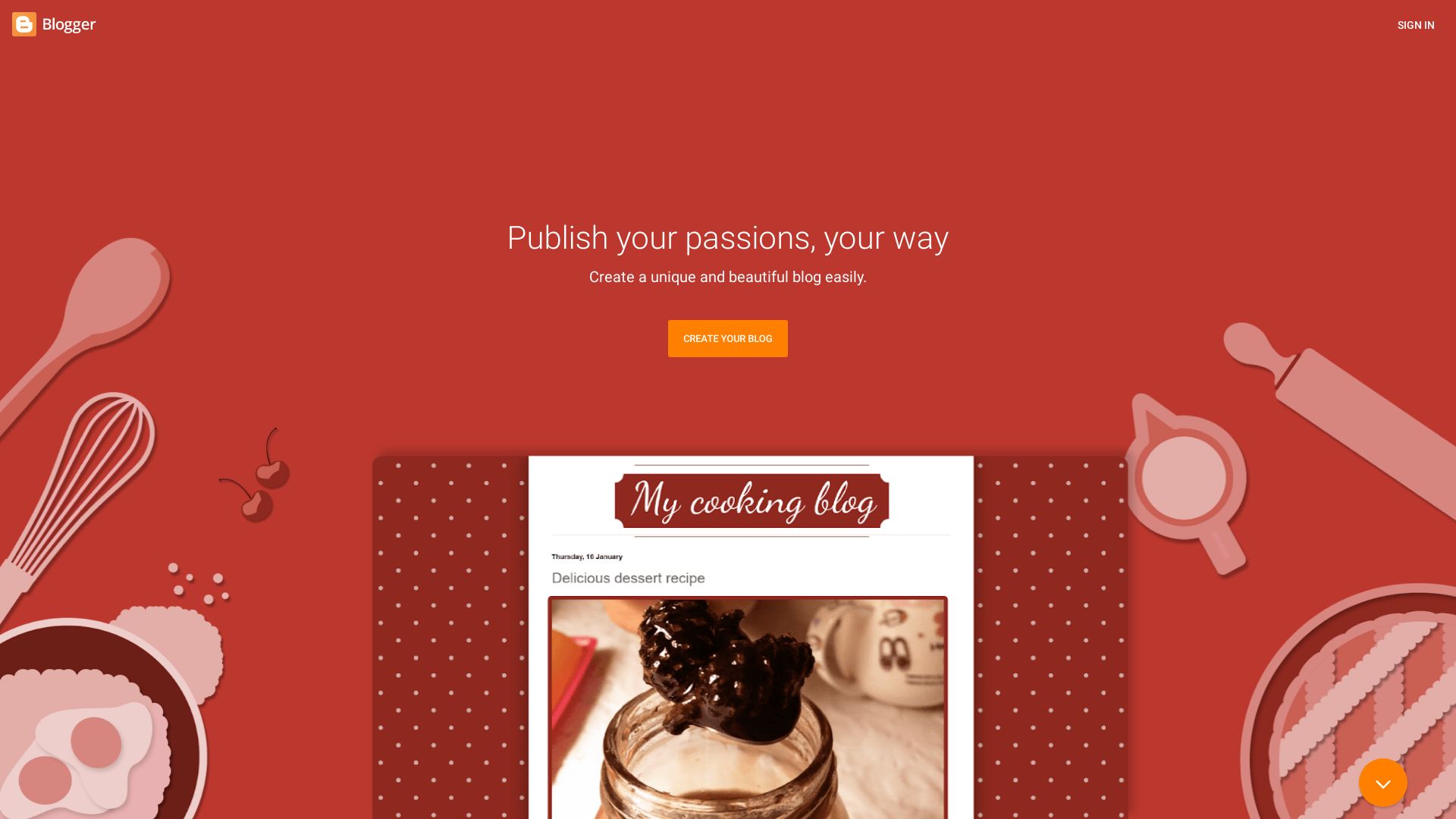
Ignite your business presence online with Blogger, an ecommerce platform known for its user experience centric design. With a distinct focus on fostering customer retention, Blogger provides a streamlined platform that elevates your brand identity and stimulates increased conversion rates upto 400%.
Blogger Top Features
- Customer-centric design for easy usage and consistent navigation.
- Smart search feature aiding quick product find.
- Ecommerce-enabled with data-driven product recommendations
- Prioritizes website optimization for mobile devices.
| High-quality visuals | Aid product trust and foster authenticity |
| Live Chat | Instant customer service tool enhancing customer satisfaction |
| Safety Ensured Secure Checkout | Hosted check-out feature breeds customer confidence. |
Blogger Downsides
- Limited to ecommerce platforms.
- Dependent on customer reviews for social proof.
- Requires AI integration for personalized customer experience.
Blogger Pricing
Specific pricing details of Blogger are undisclosed. Please refer to the official website for comprehensive pricing information.
Blogger Use Cases
Use case 1: Online Retailers
Blogger extensively enhances the user experience for customers making it a go-to platform for Online Retailers.
Use case 2: Brand-Specific Stores
Brand-Specific Stores can establish a consistent brand identity and customer trust with Blogger’s unified aesthetics and messaging.
Use case 3: Large Inventory Stores
With effective navigational tools, streamlined structure, and valued filters, Blogger assists Large Inventory Stores in simplifying the shopping experience for customers.
Shopify
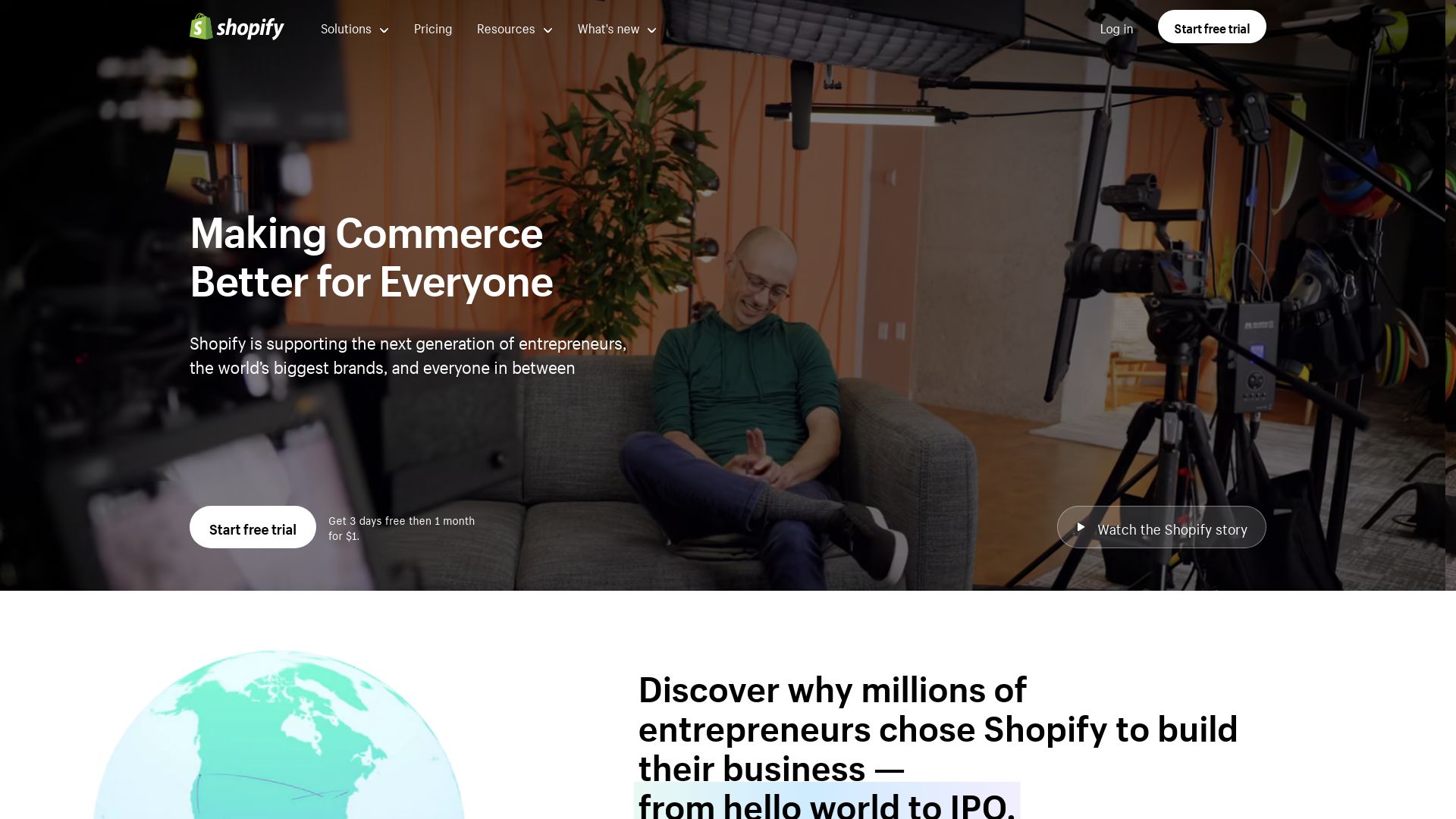
Shopify, a dominant player in the arena of eCommerce, offers pre-designed, affordable templates for initiating the journey of any online store. While the platform does not provide custom design services, it opens avenues for brand-specific aesthetics via third parties or professional web design agencies.
Shopify Top Features
- Extensive array of pre-made templates that cater to a wide array of industries.
- The flexibility of custom design with Shopify templates from third-party providers.
- The platform supports SEO, a crucial driver of website traffic, making up to 43% of eCommerce sales.
- Shopify offers unique page designs, tailored to meet the specifics of product pages, blog pages, category pages, etc.
- Key features for user retention and engagement, including search functionality, promotion and discount tools, carousel slides, mega menus, newsletter sign-ups, related items, wishlist creation, and product reviews.
| Custom Functionality | Builder Type |
|---|---|
| Custom site development with integration possibilities for your custom ERP or CRM systems | Native and headless builds |
Shopify Limitations
- Limited unique or brand-specific aesthetics within the inherent platform design. Custom design can increase expenses.
- Additional costs associated with custom functionality and integration
- Separate designs may be required for diverse page types.
Shopify Pricing
Shopify incurs a monthly fee ranging from $29.99 to $299.99. The website cost can extend further as you add theme/template costs, custom design costs, and additional functionality development costs, which can range from a basic $500- $1,000 to a potentially hefty $100,000+ for extensive projects.
Shopify Use Cases
Use case 1: Mid-Sized Enterprises
Companies with the bandwidth to invest in custom designed websites, ensuring unique, brand-specific aesthetics will find Shopify to be a worthy contender.
Use case 2: SEO Driven Stores
Businesses focused on driving traffic via search engines can leverage Shopify’s strong SEO support, encouraging higher eCommerce sales.
Use case 3: Quick Launch eCommerce Stores
With services like the Accelerator Programme by Eastside Co, businesses can launch a Shopify store in under four weeks, making it an ideal platform for those keen on a quick market entry.
Logan Bellbrook
Content writer @ Aircada with a knack for nature & AR/VR/XR. Blogging the intersection of tech & terrain.



